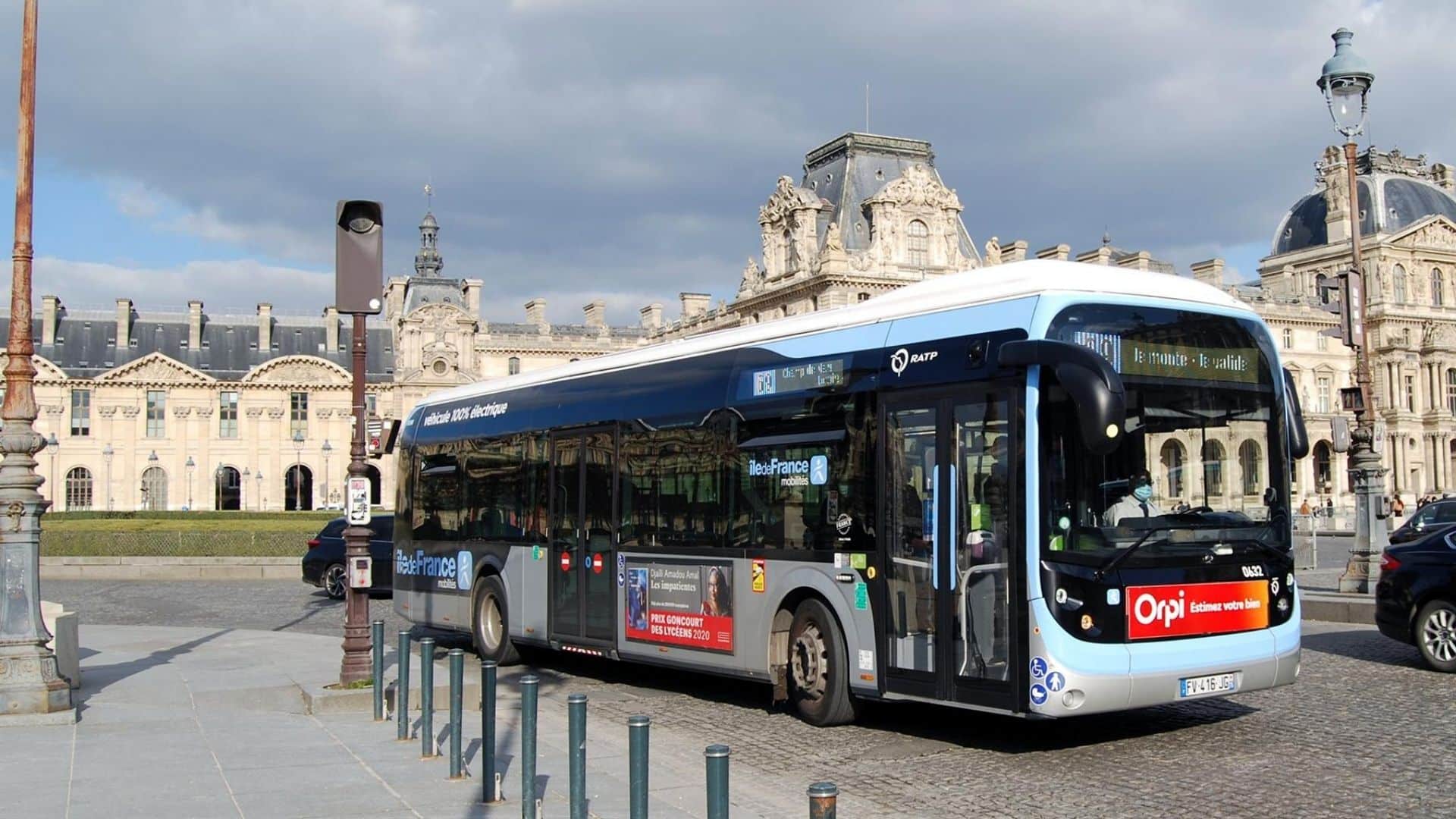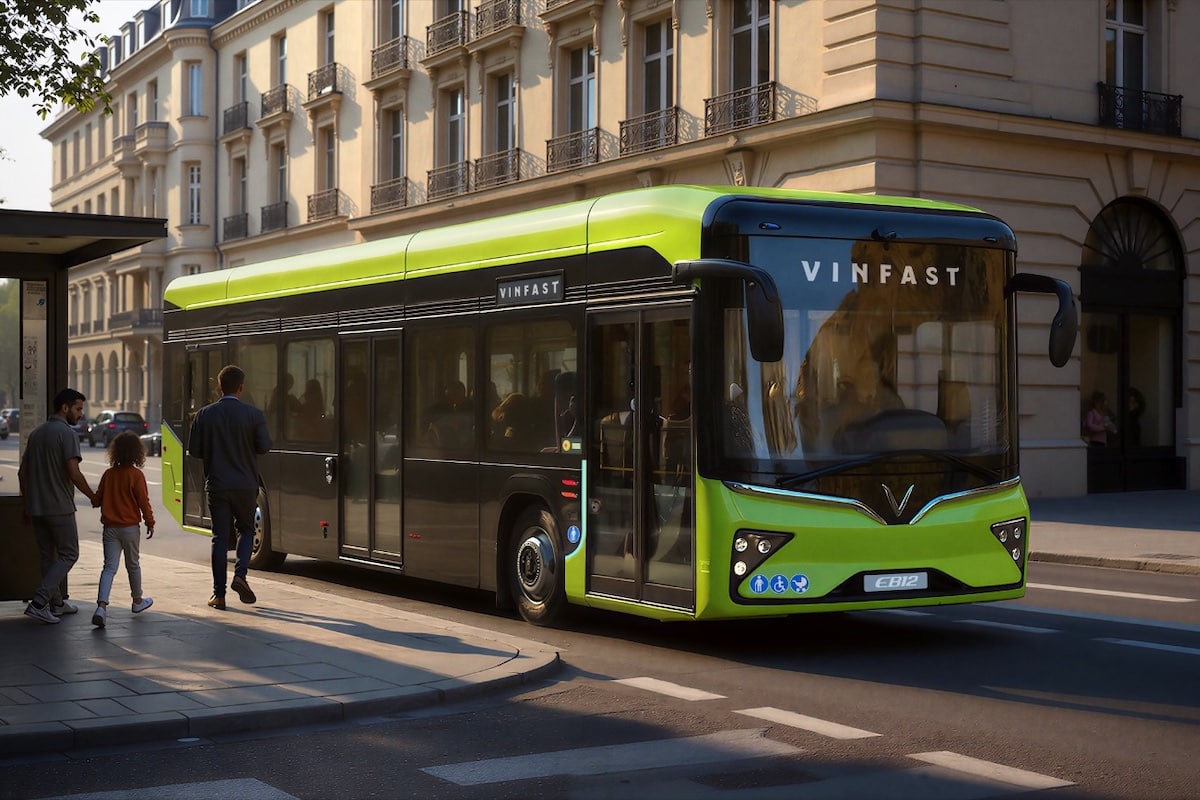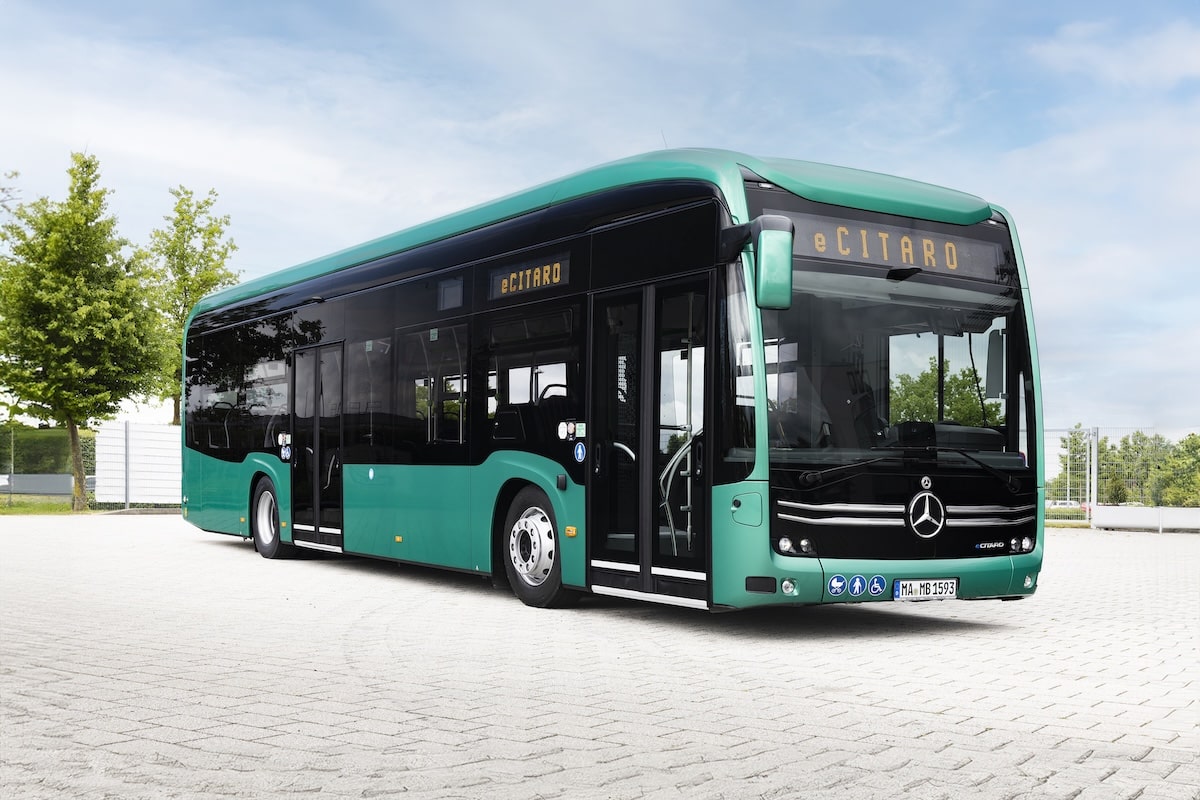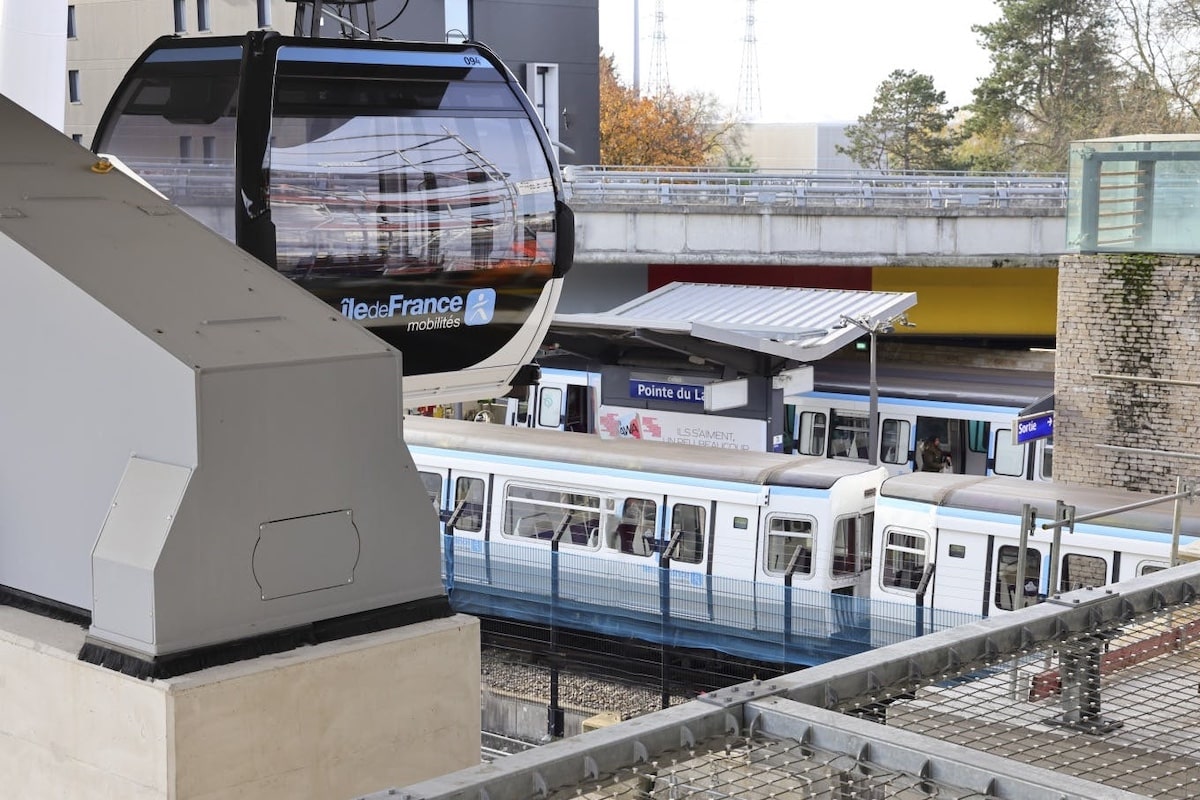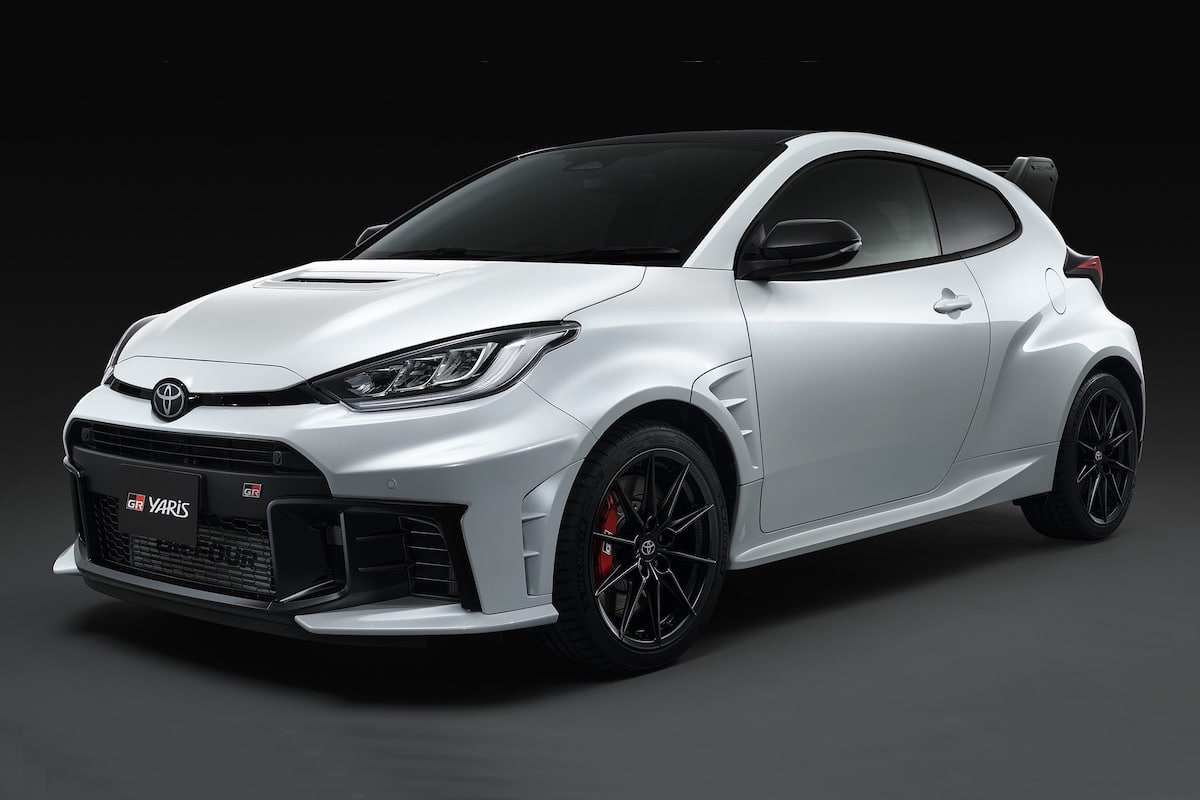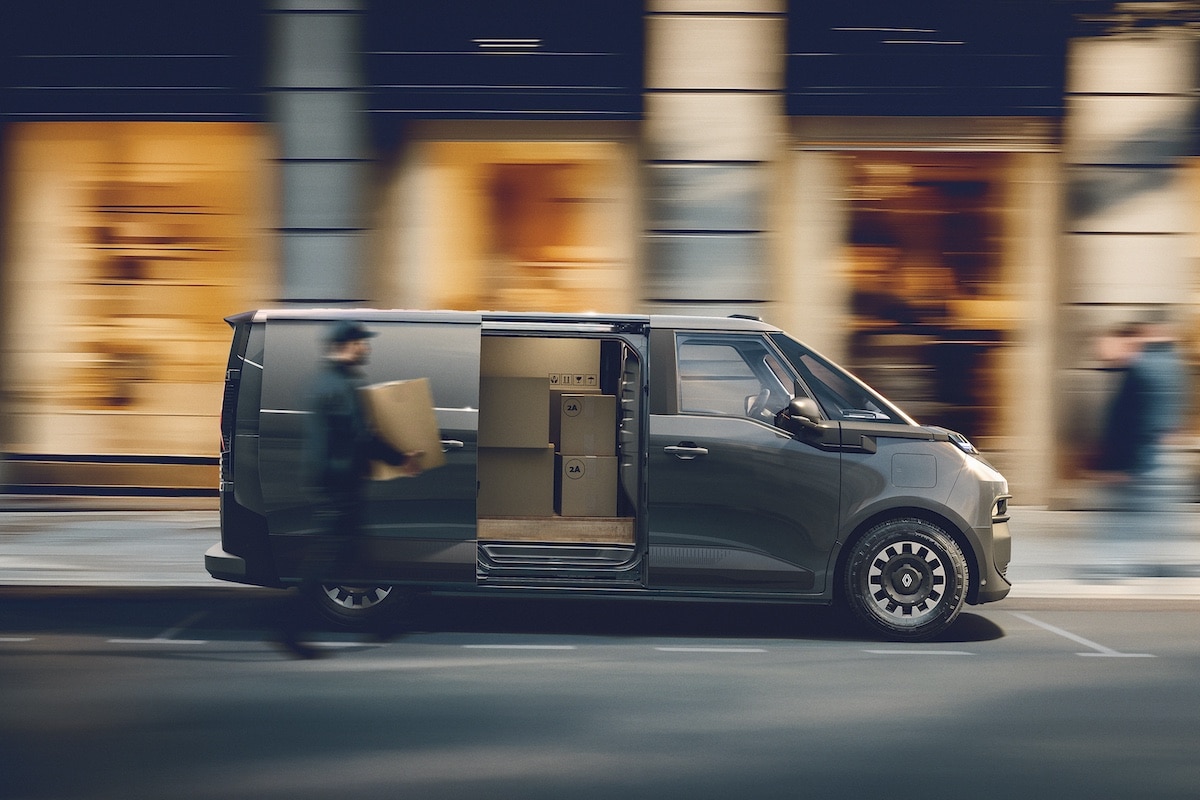In Switzerland, the Mercedes eCitaro runs up to 19 hours a day
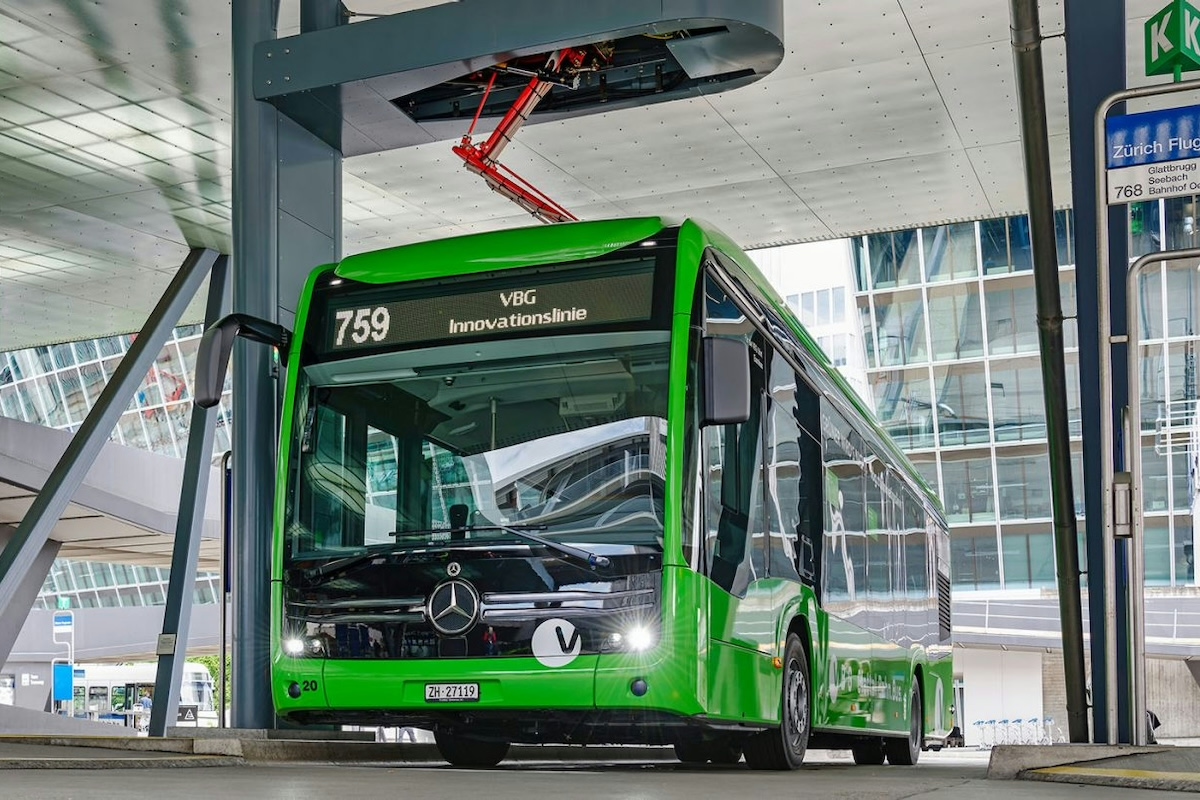
In Switzerland, two public transport operators operate Mercedes eCitaro electric buses capable of running for 19 hours straight.
Swiss pragmatism is often cited as an example. Managing the transition to electric isn’t simple for anyone, so why not aim for the most practical and efficient solution?
Thanks to an “opportunity” charging strategy, these Mercedes eCitaro electric buses, specially configured for the Swiss market, can operate continuously throughout the day, demonstrating the efficiency of a model featuring partial, rapid, and targeted charging.
You might be interestedin this article:
A pioneering model near Zurich
It is in the Zurich region, with the company VBG Verkehrsbetriebe Glattal AG, that the technology was tested as early as 2021. The first eCitaro equipped with a charging rail on its roof was put into service on line 759, nicknamed the “innovation line”. The concept: briefly recharge the bus’s batteries at each final stop, via a station equipped with a descending pantograph. In just a few minutes, the vehicle recovers enough energy to continue its route.

Following the success of this experiment, VBG has since deployed eight standard Mercedes eCitaro buses on line 759 starting in 2023. These buses connect localities north of Zurich to Kloten Airport on a 27.4-kilometer route, with a frequency of every 15 minutes, from 5 AM to midnight. A five-meter tall charging station installed at the airport allows for 300 kW charging via a pantograph that automatically connects to the bus’s charging rail.
Up to 370 km daily
Each 8 to 10-minute stop at the airport is enough to recharge the batteries for a new trip. A slow recharge at the depot overnight completes this system and helps optimize the lifespan of the batteries. Despite a relatively small capacity of 264 kWh (distributed across eight packs), the buses can achieve up to 370 km of daily range, regardless of the weather.
The city of Basel has also turned to the eCitaro to electrify its network. The operator BVB (Basler Verkehrs-Betriebe) uses 57 vehicles, including 19 standard and 38 articulated, all equipped with a pantograph on the roof. Unlike VBG, Basel’s strategy favors depot charging via pantograph. Only line 36 is equipped to allow for opportunity charging during the day.

Despite this difference, the results are also impressive: the Basel Mercedes eCitaro buses can cover up to 320 km a day, nearly without interruption, further demonstrating the relevance of the high-power charging system.
The pantograph also has the advantage of limiting human intervention, whether from the driver or another technician. This already reduces risks, as well as labor costs.
READ ALSO: The city of Casablanca acquires 40 ultra-modern buses
This page is translated from the original post "En Suisse, le Mercedes eCitaro roule jusqu’à 19 heures par jour" in French.
We also suggestthese articles:
Also read
